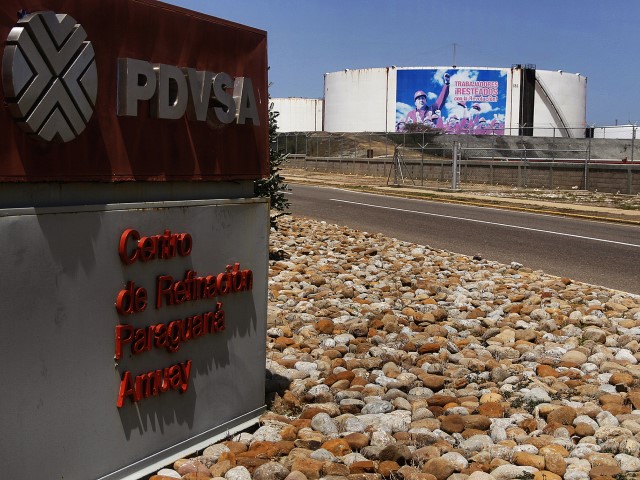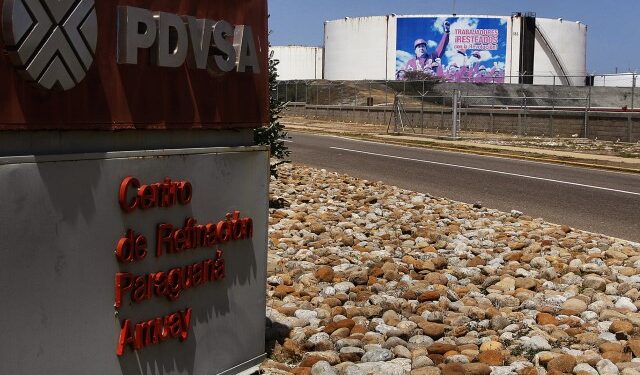Iran’s President Ebrahim Raisi will travel to Latin America on Sunday to meet with the leaders of the three leftist authoritarian regimes in the region: Venezuela, Cuba, and Nicaragua.
Iranian state news agency IRNA announced on Wednesday that Raisi and his delegation will seek to strengthen relations with the “friendly” Latin American countries without issuing further specifics. The trip, allegedly organized at the official invitation of all three regimes, marks Raisi’s first tour in the region.
Prior to Raisi’s upcoming Latin American trip, Iranian Foreign Minister Hossein Amir-Abdollahian visited the countries in February, seeking to deepen Iran’s ties with its authoritarian Latin American allies.
Raisi assumed the presidency of Iran in August 2021, succeeding Hassan Rouhani. Raisi has openly defended his participation in a series of mass executions of between 5,000 and 30,000 Iranian political prisoners that took place in the Islamic Republic in 1988 when Raisi was the nation’s deputy prosecutor general, claiming that he was a “defender of human rights.”
The communist Castro regime in Cuba has maintained ties with Iran since the rise of the Islamic Revolution in Iran in 1979, bonding through their fierce anti-U.S. stance, also shared by Nicaragua’s Sandinista regime and Venezuela’s socialist Maduro regime.
During Amir-Abdollahian’s visit to Cuba in February, the Iranian foreign minister expressed that both countries have “resisted and persisted in our revolutionary positions,” adding that Iran has “no limitations to develop its strong relationship and cooperation” with Cuba.
In 2022, both regimes had agreed to bolster their food and technological cooperation, including the potential implementation of a barter system that would see Cuba receive Iranian oil in exchange for Cuban-grown cereal. In July 2021, Cuba announced that Iran would start producing the communist Castro regime’s dubious Soberana-1 Wuhan coronavirus vaccine product months after Iran imported a lot of 100,000 Cuban-made vaccine doses in March 2021.
The United States accused Cuba in 2003 of jamming the U.S. satellite communication feeds into Iran; the Castro regime denied the allegation. Both Iran and Cuba are on the United States list of state sponsors of terrorism.
The Ortega regime’s Foreign Minister Denis Moncada signed an energy, agriculture, and trade cooperation agreement with his Iranian counterpart in December during an official visit to Tehran. On the trip, the Nicaraguan foreign minister described both countries as “friends and brothers,” praising Iran’s policies against American “domination.”
Nicaraguan dictator Daniel Ortega defended Iran’s nuclear weapons program during Amir-Abdollahian’s visit to the Central American nation in February, commenting that it would be “appropriate” for all countries to look for ways to have their “little atomic weapon.”
Venezuela and Iran, both OPEC members, signed a 20-year cooperation agreement during the official visit of socialist dictator Nicolás Maduro to Tehran in June 2022. The agreements signed cover fields such as oil, politics, economy, and petrochemicals, among others. Iran’s deputy interior minister for economic affairs, Mohsen Kousheshtabar, announced in July that the Maduro regime had ceded one million hectares of Venezuela’s farmland to Iran, an apparent concession made during those negotiations. The Venezuelan socialist regime never confirmed or denied Kousheshtabar’s statements.
Maduro and his socialist regime’s deep ties to Iran have been instrumental in their attempts to repair Venezuela’s crumbling oil industry after years of socialist mismanagement. Reports released in February indicated that Iran would soon begin to revamp Venezuela’s Paraguaná Refining Center, the nation’s largest crude oil refinery complex, located in Falcón state. The 460-million-Euro contract ($492 million) signed reportedly aimed to boost the center’s diminished oil output while helping the Maduro end its reliance on U.S. refinery technology.
Iranian Oil Minister Javad Owji announced in October that the Islamic Republic is refining upwards of 100,000 barrels per day of its own crude oil in Venezuela’s El Palito refinery after Iran repaired the complex as part of a 110-million-Euro (about $107 million at the time) contract signed in May 2022. Although Iran repaired the El Palito refinery and is slated to repair the Paraguaná complex, both refineries continue to face malfunctions that have forced them to repeatedly suspend operations.
Last week, the catalytic cracking unit at Venezuela’s Cardon refinery — which is one half the size of the larger Paraguaná complex — broke down once again, forcing the refinery to halt operations. In May, an electrical problem in El Palito caused the refinery to shut down for a week.

March 13, 2023, Paraguana, Venezuela: The catalytic cracker at Amuay, Venezuela’s largest refinery, has been halted for repairs for at least a week. Amuay and the Cardon refinery make up the Paraguaná Refining Center (CRP), the largest in the oil country, with the capacity to convert 955,000 barrels per day of crude. (Humberto Matheus/ Eyepix Group/Future Publishing via Getty Images)
The frequent problems at Venezuela’s rundown oil refineries have led to continuous fuel shortages in the country, which, paradoxically, has the world’s largest proven oil reserves. The ongoing fuel shortages have once again worsened throughout June. On Thursday, several Venezuelan citizens reported lengthy fuel lines across the country.
The socialist governor of Falcón state Víctor Clark, acknowledged the shortages on Thursday, explaining that the shortages will last throughout the remainder of June due to the ongoing problems at the Paraguaná refining complex. On Sunday, the socialist governor of Mérida state Jehyson Guzmán held a raffle on Instagram to determine which vehicles would be allowed to be refueled based on the numbers of their license plates.
Christian K. Caruzo is a Venezuelan writer and documents life under socialism. You can follow him on Twitter here.
https://www.breitbart.com/middle-east/2023/06/09/irans-butcher-president-raisi-heads-venezuela-cuba-nicaragua/






